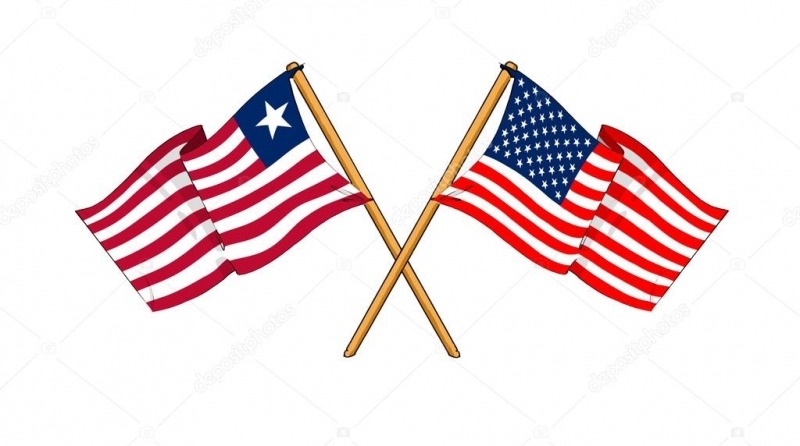As much as many Liberian have consorted the founding of Liberia to an American creation, few still don’t understand that the fundamental long term goal of this creation had a bigger meaning. At the genesis of this act, colonization was born in Liberia, segregating the black race from the white race. Moreover, founders of the Liberian state were not African-American precisely, but distinguished political leaders of the United States of America, who attempted to solve the question of slavery and race in America, by resulting to the grand scheme of shipping and colonizing free African-Americans ( Free slaves) in Liberia.
James Tellewiyon, one of Liberia’s sage writers, in his book “The Years the Locust Have Eaten: Liberia 1816-2004,” sadly explained,
“The men that conceived the idea of colonizing African- Americans, financed it, and nurtured it, were not African-American or ordinary Americans, the majority of African- Americans opposed colonization but leaders of the American government, the American clergy, and the American aristocracy. The American political leaders who fostered the creation of the Liberian state included: president Thomas Jefferson , James Monroe, and Andrew Jackson; chief justice John Marshall; speaker of the house of Representatives, Henry Clay; and Francis Scott Key, the Author of the national anthem of the United States to name a few”.
We all are aware of the creation of the Lone Star of Africa and how it was birthed by notorious racists, slaveholders and selfish political leaders of the United States of America, under the umbrella of the American Colonization Society (A.C.S). Let’s now establish some key facts of America’s long interference in her creation, from birth to her child’s independence in 1847, and how she has contributed immensely to policies that have affected the growth of prospects of the First Republic on the dark continent of Africa, Liberia.
Today, Africa’s oldest sovereign republic, founded under pretense of relocating free slaves, has had 172 years of independence. The Republic of Liberia however, has grown under the watch of her colonizer (America) since 1822, causing citizens to call themselves Americans with pride. All the national symbols, including the flag, the name of towns, villages, cities and streets and even the diet were all adopted from the United States. The national flag, called “The Lone Star Flag” was a replica of the star and stripes of the United States. Governor Thomas Buchanan recommended the seal of the Republic, when he wrote the ACS and suggests “We want a standard, and if one is forwarded, I will see that it be paid for, unless you prefer making a present making a present of it. It should be of silk, and have the Liberian coat of arms; I would suggest an eagle, with a palm tree near, and a sun rising over the branches.” (J. Tellewiyon, The Years the Locusts Have Eaten, USA, 2006)
The only item that was later changed on the seal of Liberia was the eagle, replaced by a dove. Added to this parroting of symbols were the names of the cities, towns, street, rivers, such as Monrovia, Caldwell, Bushrod Island, Mechlin Street, Randall Street, Ashmun Street, etc., which had all been named after white employees, patrons, and founders of the American Colonization Society. Moreover, Americo- Liberians, as the relocated freed slaves were called, the American diet: sugar, cheese, pork; many repatriates refused to work on the farms, in the fields, and on plantations, causing regular importations of goods from the United States of America. (African Repository, Volume 16, 1840, p. 116)
After identifying the financial difficulty brought on by the ACS, the American government refused to recognize Liberia’s sovereignty; smartly, Liberia turned to Europe, and signed the Anglo-Liberia Treaty of 1848, and obtained early recognition from America’s perennial territorial rival, Britain.
America’s presence had caused other international actors to cease massive interest in Liberia, protecting her boundary from indigenous surroundings and colonial empires of Britain and France, while supporting American companies like Firestone to rob Liberia of her resources, all under the pretense of economic growth. After 78 years of struggling Independence, the United States of America and the American rubber industry foresaw that the crude rubber could grow on Liberia’s rich soul. In 1902, after the fall of the Rubber on the world stage, Liberia Rubber Company had been abandoned when the price of crude rubber plummeted during World War I. Firestone’s interest in Liberia grew like a wildfire after he failed to establish a rubber plantation in southern Mexico and the Philippines. He noticed that Liberia was already under the receivership of America. After facing several obstacles in persuading Liberian leaders his establishment of a plantation would serve as economic growth in the interest of Liberia, an agreement was signed on September 17, 1925 in New York; representing Liberia was Secretary of State, Edwin Barclay and Harvey S. Firestone for the Firestone Rubber Company.
While still seeking freedom from neo-colonization like other African countries, Liberia however was also impregnated with internal crises. Divisions between the Americo-Liberians and the indigenous people they met here led to racial antipathy, which then served as major fuel for one of her many internal problems. Additional problems included, tribalism, corruption, illiteracy, bad leadership, lack of maintenance; poor health and education sectors, and most importantly, lack of patriotism.
These challengers however, have set the stage for continuous failure since some chiefs were forced to share their land through the wielding of the power of gun; the settlers tried to forcefully integrate into indegioues country and introduce new culture. Majority of the battles fought were lost by the indigeneous due to their primitive war skills and lack of arms. After the establishment of the Liberian state led by Joseph J. Roberts, the independence movement was gathering steam; internal opposition emerged against self government, especially for Sinoe and Grand Bassa, two coastal counties. Questioning the propriety of severing Liberia’s financial ties with the ACS; others feared the dominance of the Americo-Liberians in the independent Liberia; while others insisted that Liberia’s Independence was not the panacea for economics and political problems. The colonists’ biggest fear was losing the financial assistance that they were receiving from the American Colonization Society (ACS).
Authored by Isaac G. Redd Jr.
Featured Picture by Africa Orbit


One Comment